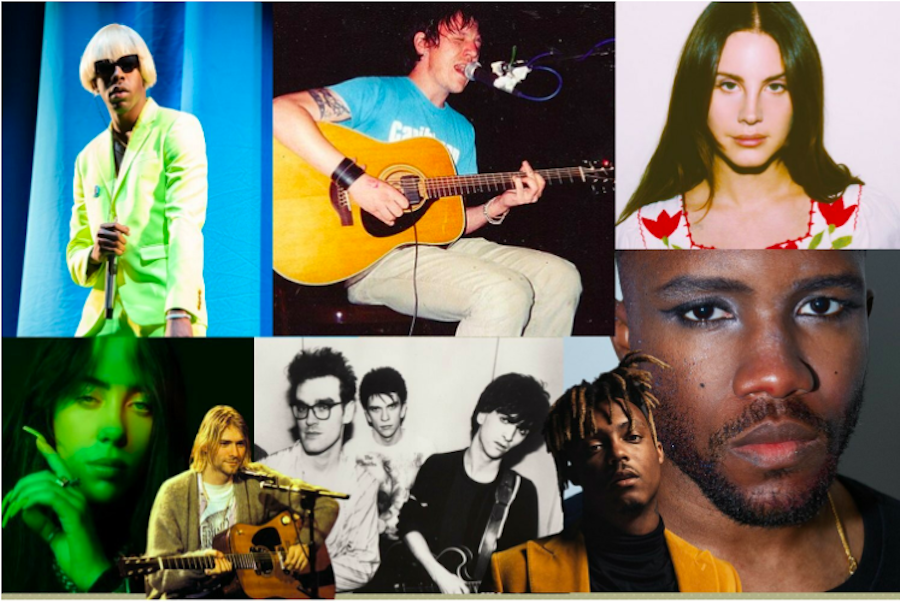Photo Credit: Sophia Garcia/Achona Online/Piktochart
A variety of different artists that produce top sad song hits.
Why are we drawn to sad music?
September 8, 2020
There will be times in any individual’s life where the urge to listen to a melancholy song is so prominent it’s stress inducing. Whether it’s Lorde or Shawn Mendez, these set of tempos and melodies are like an itch that has been begging to be scratched. This desire is not just from the heart, but instead it affects how the brain processes and regulates emotion.
A logic based answer to this question would be people listen to sad music because they resonate with the atmosphere it brings, but there is a science based conclusion for this as well. Sad music is linked to prolactin, a hormone that sits at the bottom of the brain and is associated with comfort and warmth. The brain can be fooled into releasing prolactin as a response to fictional sadness. Endocrine responses (prolactin and oxytocin) are generally reserved for softening mental pain from a real loss.
Amanda Castillo (‘22) says, “I think a mix of my music is both sad and happy. It all varies, however my mood is what tune I’ll pick. Though, something about super sad music just draws me in constantly. I can’t explain it.”
Of course, not every person responds to sad music the same. Sophia Torres (‘22) says, “When I listen to sad music I can become upset but in the end I can move on, it won’t affect my mood for the rest of the day.” This can be linked with hormone levels. Those with higher concentrations of prolactin are associated with pleasure in sad songs, while those with low prolactin concentrations are linked with unpleasant music-induced sadness. So, in Sophia’s case her prolactin levels are most likely lower than others.
Adding onto this, people with depression are more inclined to enjoy sad music than those without it. A study done by Yael Millgram on July 19, 2015 was assessed to measure emotional regulation. The study found that rather than people with depression listening to depressing music to worsen their mental state, these melodies are used as coping mechanisms.
Abby Neal (‘22) states, “I enjoy sad music and especially when I’m feeling low. Lana Del Rey is probably the best cure for me and if my day is gloomy I count on her to get me through it”.
Empathy is also a factor towards the alluring of despairing tunes. On February 12, 2012, Jonna K. Vuoskoski conducted a study that included one hundred and forty-eight participants who listened to sixteen different types of music and evaluated their responses. As a result, those who are more open to experience and empathetic were associated with enjoying these desolate melodies. “The facets of empathy related to feelings of compassion and strong identification with fictional characters in books and films seem to be the best predictors of sad music enjoyment,” she says.
Another study was conducted and found that sad music brought forth a variety of positive aesthetic emotions. People who scored with high empathy on this study claimed that they appreciate the miserable tunes and the beauty behind them. The variety of emotions presented are pleasing to the heart.


Laura Caroline • Sep 18, 2020 at 1:49 pm
This article is really interesting and so good. Thank you!